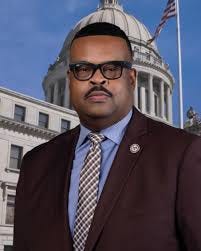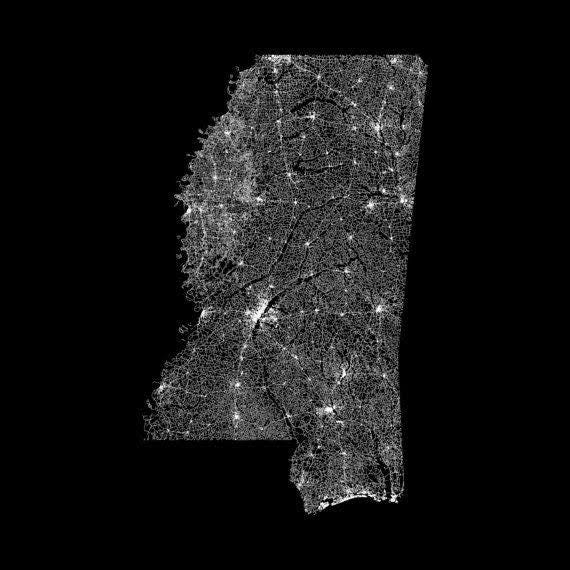LLW Lite: "...But, We Still Down Here Living, Though..."
Thanks to Sinners, Mississippi is enjoying some well-deserved accolades for something monumental and positive, however, this native needs to add something very important for everyone to keep in mind.
While I’m not sure how long it will last, the home state is in the limelight shining from love and attention, thanks to a phenomenal cultural piece that centralizes the state, its rich Black history and powerful contribution as the birthplace of the Blues. In the wake of the film’s success, it seems many are revealing their Mississippi roots, including Coogler himself, as they resonate and connect with the masterful storytelling of his box office hit. I remember the days when people considered it shameful to come from such a place as Mississippi. They claimed Chicago, Memphis, St. Louis, Detroit, New York and would rather die than to admit that Mississippi is in their blood. And, one day, I will venture into how this film has caused many Black folk to undergo a reckoning of their family histories.
I never had the option of being ashamed, nor did I ever need one. You see, I reside within close proximity of Mississippi. It takes less than twenty minutes to drive to the state line. Often, I tip into the Sip to Southaven whose catchphrase is ‘Top of the State’ and dine at some of my favorite eateries there. During the weekend of Resurrection Sunday, I drove to my hometown to sit on my Auntie’s porch and eat dinner.
I know what it feels like to sink my toes in Mississippi mud and shell peas that came fresh from the garden or the back of the local Black farmer’s truck. I have listened to the stories such as the one that my grandma shared about the little piece of justice she claimed for herself by leaving Brooksville, Mississippi and giving up the life of sharecropping. She talked proudly about the stand she took against the landowner they called Stevens as he accused her of owing him a little over a hundred dollars. She maintained that they, as in her and my grandfather, didn’t owe him that money; that they were paid up fair and square. Stevens still demanded the money and tried to keep them from leaving. Instead, my grandparents packed up and moved the family to Columbus into a house down the street from my great-grandmother. My aunt lives in that house right today, while my brother lives at the same address where my great-grandmother’s house originally stood.
I also recall a sharecroppers’ protest that occurred in the Delta during the sixties. My great uncle, Wallace Green, was a part of this standoff as Black sharecroppers demanded better pay and living conditions from the landowner. His refusal resulted in those sharecroppers going on strike and pitching tents to live as they defiantly stopped working in the fields until their demands were met. They even formed a mule train and traveled to Washington, D.C. to bring visibility to their plight. This became known as Strike City. You can watch a short documentary about it here. At the 9:37 mark, you will see my great uncle.

It’s always been my station to represent the home state as a place where greatness is born and cultivated. We have the list of cosmic wonders to show for it: Oprah Winfrey, Morgan Freeman, James Earl Jones, Leontyne Price, Hiram Revels, Ida B. Wells, Aunjanue Ellis-Taylor, and the list goes on. But yet and still, due to the torrid history of the state and its persistent struggles to overcome this past, the state has continued to exist in the societal imagination as a dark, dangerous, and backwards place to live. Admittedly, this perspective isn’t inaccurate, it’s just incomplete. While the thinkpieces are published, the syllabi are created, and the panel and social media discussions continue analyzing the spirituality, the symbolism, the culture and the history that Sinners embodied, I want to make one thing perfectly clear:
“We still down here living, though…”
In keeping step with current news and events, Mississippi is a hotbed of grassroots efforts to not only preserve and reconcile the past, but also build a thriving future. Down the road from where I currently live, some 76 miles away, Clarksdale, the ‘hometown’ of the twins Smoke and Stack, is buzzing this weekend with bringing multiple screenings of Sinners along with a Q&A with Ryan Coogler himself. Aside from the actual writer and director being in attendance, this is a big deal because the predominately Black town of 14,000 doesn’t have a movie theater. This push to have the film screened there started with an open letter and a petition. Other events are occurring around the screenings as part of an initiative called Clarksdale Culture Capital. One of the organizers is a creative culture agency known as SippTalk which is spearheaded by Black Millennials.
Tyler Yarbrough, a community activist in Clarksdale, is part of a co-op called Rootswell which was instrumental in reopening a neighborhood food market called J’s Grocery recently. Watch him explaining more about its purpose in solving the problem of food insecurity in this docuseries, Delta Trues, prior to the establishment reopening.
As an educator and product of the Mississippi public education system, I have been keeping track of the progress that the state has made in terms of shrinking the literacy deficit while at the same time being infuriated by the undermining of these achievements by outsiders who want to continue kicking Mississippi down to the last rung of society. Specifically, in the Delta, which is the most resource-starved part of the state, educational attainment is critical in improving the quality of life and the economy of that region. In another Delta Trues episode, meet Executive Director, Amanda Johnson, and how she’s doing the work to improve educational outcomes in this region.
Another organization that has their ‘boots on the ground’ in the Sip is the Mississippi Black Women’s Roundtable which provides a host of community services and programming to address the needs of Black Mississippians. In addition, my classmate, Kabir Karriem, is the Chairman of the Mississippi Legislative Black Caucus and another childhood associate, Darren Leach, is running for mayor in my hometown of Columbus. Mississippi is enjoying some recent industrial investments that are bringing jobs to the state’s citizenry, which is nearly forty percent Black.


The state boasts of a few important attractions such as the Mississippi Civil Rights Museum, the BB King Blues Museum and Delta Interpretative Center, the Mississippi Art Museum and several smaller museums along the Mississippi Blues Trail and a small museum dedicated to the history of the Black founded town of Mound Bayou which stands in desperate need of revitalization but it’s there.
Then, there’s little ol’ me bringing up the rear. I’m working to relaunch my theatrical production company, Harkins House Productions, and produce my fourth stage play set in my hometown called Saturday Life as well as write stories that will speak to the other reality of living and breathing in such a place. Despite what them history books say and despite what people think, life has its beautiful moments in the Sip. It ain’t all suppression, pain, and suffering. I want to uphold the texture, integrity, eloquence, transparency and power of the Black literary legacy established by writers like Richard Wright and Margaret Walker. That’s all. I love who I am and where I come from and no matter where I go and what I do in life, I will always be a little Black girl from Mississippi. Let me leave y’all with this year’s winner of American Idol, Meridian native, Jamal Roberts.
Chandra Kamaria is a writer, educator, public scholar and entrepreneur. To support her work, consider becoming a paid subscriber to The Literary Lightworker. You may also contribute by clicking this link: BuyMeACoffee





